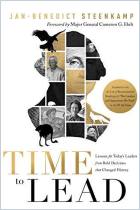
Sentimental Democracy
The Evolution of America's Romantic Self-Image
Read or listen offline
Recommendation
Andrew Burstein’s book reveals an obscure but important thread in U.S. cultural history. His discussion of the "Man of Feeling" and the culture of sensibility provides important background for understanding the American Revolutionary period. Since documents such as the Declaration of Independence and the Constitution of the United States often are read out of context (if they are read at all), Burstein helps you understand what they meant to their contemporaries. Burstein is almost too thorough in surveying 18th and 19th century literature for examples, and the book is slow going at times. But he also tries to show how these ideas persist in America’s self-image. His contemporary analysis is skimpy, though - such as his attempt to explain Hollywood screenwriting conventions in terms of sentimental democracy. However, getAbstract.com recommends this book to anyone who wants to understand some of the subtleties behind the events of early American history.
Take-Aways
About the Author
Andrew Burstein graduated from Columbia College and received an M.A. in Asian Studies from the University of Michigan. He obtained his Ph.D. from the University of Virginia in 1994. He has taught U.S. history at several colleges and is the author of The Inner Jefferson

















Comment on this summary or Iniciar a Discussão